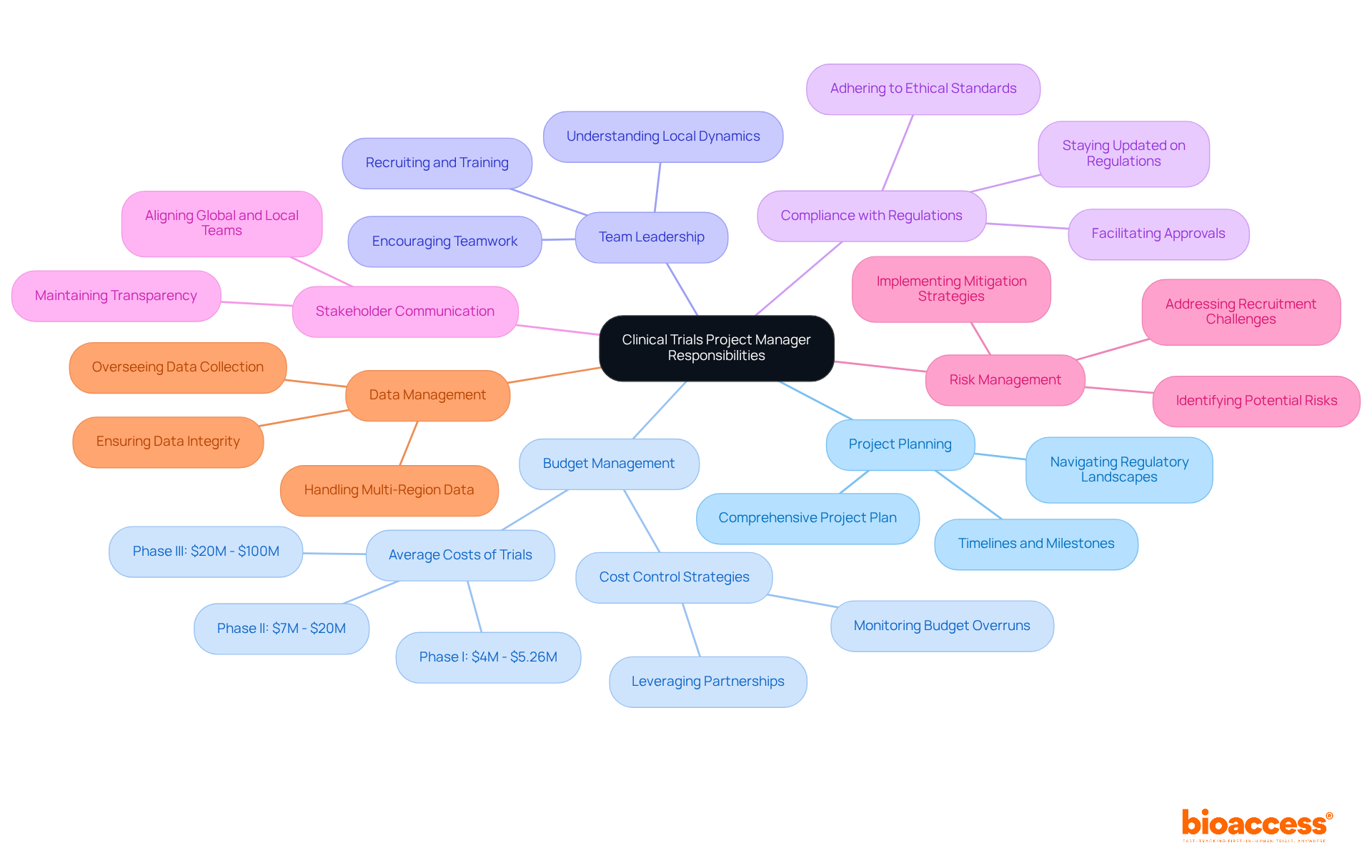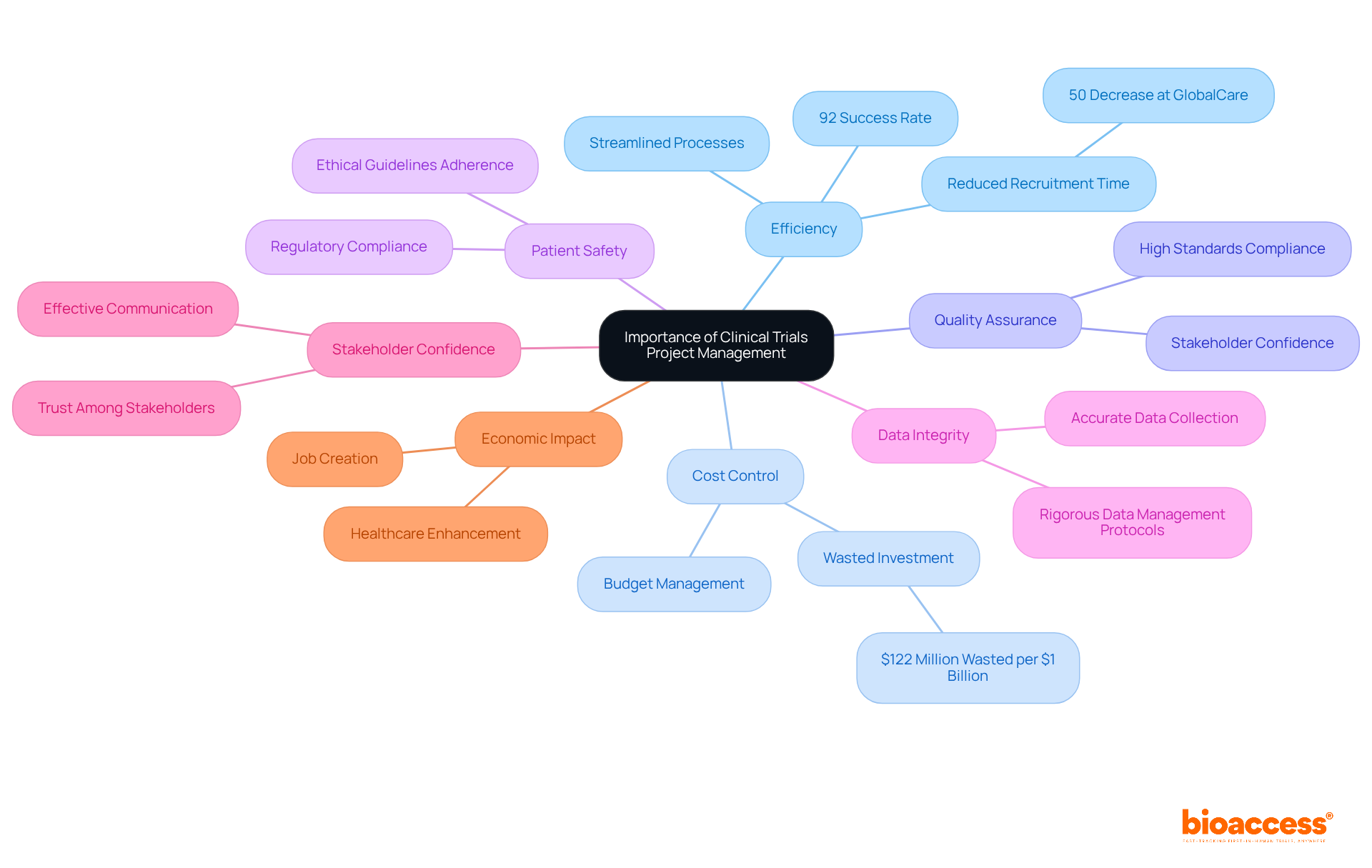


A clinical trials project manager plays a pivotal role in overseeing the planning, execution, and completion of clinical research studies. This position ensures strict adherence to timelines, budgets, and regulatory requirements while facilitating effective communication among stakeholders. Key responsibilities such as:
are essential, as they collectively enhance the efficiency, quality, and safety of clinical trials. Such contributions are not merely operational; they significantly advance medical research, underscoring the importance of this role in the broader Medtech landscape.
The world of clinical research presents a complex arena where precision and collaboration are paramount. At the core of this intricate process is the clinical trials project manager, a pivotal figure responsible for steering studies from conception to completion. This article explores the multifaceted role of clinical trials project managers, detailing their essential responsibilities, the skills they must possess, and the significant impact they have on the success of medical research.
How do these professionals navigate the challenges of regulatory compliance, budget constraints, and team dynamics to ensure that trials are not only efficient but also ethically sound?
A clinical trials project manager holds a pivotal position in the successful execution of research studies, overseeing their planning, execution, and conclusion. This role encompasses all facets of the experiment, including timelines, budgets, and adherence to legal requirements. CRPMs serve as the primary liaison among stakeholders such as sponsors, regulatory agencies, and research sites, facilitating seamless communication and collaboration throughout the study process. Their expertise is indispensable for navigating the intricate landscape of clinical research, which frequently involves multiple phases and diverse teams.
In 2025, the average salary for a clinical trials project manager is projected to be approximately $115,584, with seasoned professionals earning as much as $150,000 annually. This statistic underscores the robust demand for skilled clinical trials project managers, who play a crucial role in safeguarding participants' rights and maintaining the integrity of study data. Successful case studies illustrate how effective CRPMs can enhance study outcomes through strategic planning and proactive problem-solving, underscoring their invaluable contribution to the advancement of medical research.

The role of a clinical trials project manager includes a variety of critical functions that are essential for the successful execution of clinical trials.
By efficiently overseeing these duties, the role of a clinical trials project manager is crucial in promoting medical research and ensuring the successful conclusion of studies, particularly in the dynamic and changing environment of Latin America.

Clinical Trials Project Management is essential for several reasons:
Efficiency: Effective project management streamlines processes, significantly reducing delays and ensuring timely completion of trials. Organizations that adopt strong management practices achieve a 92% success rate in meeting objectives, underscoring the significance of structured oversight in research. For instance, the clinical trials project manager at GlobalCare collaborated with bioaccess™ to enhance its outpatient services in Colombia, resulting in a remarkable decrease in trial participant recruitment time by over 50%.
Cost Control: By meticulously managing budgets and resources, managers help prevent overspending, which is crucial in the financially constrained environment of clinical research. A staggering statistic reveals that for every $1 billion invested in an initiative, over $122 million is wasted due to poor performance, highlighting the financial implications of effective management.
Quality Assurance: A strong project manager ensures that all experimental components adhere to high quality standards, essential for compliance approval and the credibility of the research. This commitment to quality not only enhances the integrity of the process but also fosters stakeholder confidence. bioaccess™ emphasizes operational excellence, ensuring adherence to local requirements, including feasibility studies and compliance reviews.
Patient Safety: By strictly following ethical guidelines and regulatory requirements, the clinical trials project manager plays a crucial role in safeguarding the well-being of study participants. Their oversight guarantees that patient safety remains a top priority throughout the study process.
Data Integrity: Proper management ensures that the data collected during the trial is accurate and reliable, critical for drawing valid conclusions and advancing medical knowledge. Effective clinical trials project managers implement rigorous data management protocols to uphold data integrity.
Stakeholder Confidence: Effective communication and management foster trust among stakeholders, including sponsors and regulatory bodies. This confidence is vital for the successful implementation of medical studies, promoting cooperation and transparency during the research process. The partnerships bioaccess™ has formed, such as with IDx Technologies for AI-based disease detection, exemplify how stakeholder collaboration can lead to innovative solutions that a clinical trials project manager can implement in clinical research.
Economic Impact: Clinical studies significantly affect local economies, contributing to job creation, economic growth, and healthcare enhancement. By facilitating these trials, bioaccess™ plays a crucial role in fostering international collaboration and enhancing the healthcare landscape.

The role of a clinical trials project manager is integral to the field of medical research, ensuring that clinical studies are conducted efficiently and ethically. This position extends beyond merely overseeing trial logistics; it encompasses the vital task of protecting participant rights and upholding the integrity of collected data. The responsibilities of a clinical trials project manager are diverse, including:
Key insights throughout this article underscore the critical nature of effective project management in clinical trials. Streamlining processes significantly enhances success rates, while diligent budget oversight mitigates financial waste. Furthermore, a steadfast commitment to quality and patient safety is paramount in cultivating stakeholder confidence and ensuring that trials yield positive contributions to local economies. Strategic partnerships, such as those with organizations like bioaccess™, further amplify the role of clinical trials project managers in improving research outcomes.
In summary, the position of a clinical trials project manager is essential not only for the success of individual studies but also for the broader advancement of medical knowledge and healthcare improvements. As the clinical research landscape evolves, the demand for adept project managers is poised to increase. Highlighting the importance of this role can motivate aspiring professionals to embark on careers in clinical trials management, ultimately fostering the ongoing development of innovative treatments and therapies that benefit society as a whole.
What is the role of a clinical trials project manager?
A clinical trials project manager oversees the planning, execution, and conclusion of research studies, managing timelines, budgets, and legal requirements while serving as the primary liaison among stakeholders.
Who are the stakeholders that clinical trials project managers communicate with?
Clinical trials project managers communicate with sponsors, regulatory agencies, and research sites to facilitate collaboration throughout the study process.
Why is the role of a clinical trials project manager considered crucial?
Their expertise is essential for navigating the complexities of clinical research, ensuring participant rights are safeguarded, and maintaining the integrity of study data.
What is the projected average salary for a clinical trials project manager in 2025?
The average salary for a clinical trials project manager in 2025 is projected to be approximately $115,584, with experienced professionals earning up to $150,000 annually.
How do effective clinical trials project managers impact study outcomes?
Successful clinical trials project managers enhance study outcomes through strategic planning and proactive problem-solving, contributing significantly to the advancement of medical research.